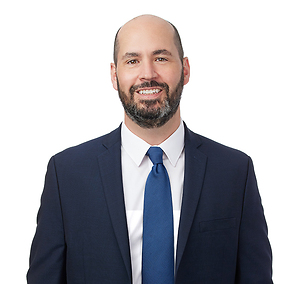Overview
Regina Raub sued US Airways for injuries she allegedly suffered when her flight encountered turbulence. In preparing the case, Raub’s attorney spoke with two US Airways flight attendants. Ethics rules prohibit a lawyer for one party from communicating directly with opposing “represented parties,” so US Airways cried foul. The airline asked the court to sanction the plaintiff by revoking the attorney’s pro hac vice admission.
The Eastern District of Pennsylvania, in Raub v. US Airways, said that the dispute turned on whether the flight attendants qualified as “represented parties” under ethics rules. Determining which employees are “represented parties” can be a complicated endeavor when it comes to large corporations. US Airways argued that the flight attendants were “represented parties” because they had the “authority to obligate the organization with respect to the matter” or because their acts or omissions could be imputed to US Airways for purposes of liability.
turned on whether the flight attendants qualified as “represented parties” under ethics rules. Determining which employees are “represented parties” can be a complicated endeavor when it comes to large corporations. US Airways argued that the flight attendants were “represented parties” because they had the “authority to obligate the organization with respect to the matter” or because their acts or omissions could be imputed to US Airways for purposes of liability.
The court explained that an employee’s “authority to obligate” means that the employee’s admissions within the scope of their employment could be imputed to the company. The court said there was not enough evidence relative to the flight attendants’ job duties or the substance of their admissions to find that they had the authority to obligate US Airways.
The court did find that the flight attendants’ acts could subject US Airways to liability. The plaintiff argued that she had not accused the flight attendants of wrongdoing, so their actions could not serve as a basis for liability. But the court disagreed, noting that flight attendants are generally responsible for the safety of passengers in their custody, and that their statements and actions during the flight could certainly create liability for the airline. Thus, the flight attendants were “represented parties” who could only be contacted through the airline’s counsel.
Turning to the appropriate sanction, the court took a “no harm, no foul” approach. US Airways had stipulated to liability, and trial was to be only on damages. Thus, any improperly-obtained flight attendant statements were inadmissible anyway. Since US Airways was not prejudiced by the ethical violation, the court declined to revoke the plaintiff’s attorney’s pro hac vice admission. Instead, the court found that an admonishment in the form of the court’s opinion would suffice.
There are two key take-aways from this decision. First, under many circumstances, flight attendants and other airline employees may be considered “represented parties,” even if they are not high-level management. When assigned a claim to defend, airline counsel should identify potential employee witnesses who would be considered “represented parties” and instruct them to direct communications from an opponent to counsel. Second, this decision serves as a warning for all attorneys. When a new matter comes in, attorneys should be eager to dig in, interview witnesses, and collect all pertinent facts. Such efforts, while admirable, should be pursued with great care to comply with ethical rules, avoid sanctions, and ensure that evidence collected will be usable at trial.
